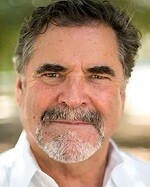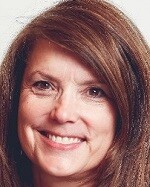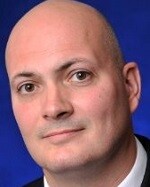By Michael Bates, Tonya Cosby, and Robert K. Perrons, SPE
Ronald Reagan played a leading role in negotiating the largest and most complex arms-control treaty in history, resulting in the removal of about 80% of all strategic nuclear weapons then in existence. Achieving an objective like that required a significant amount of goodwill on both sides of the negotiation, but Reagan famously tempered this with a personal philosophy that shaped the operational aspects of the agreement: “Trust but verify.” Therein lies an important truth about how organizations work together. Even when everyone is negotiating toward a common goal that benefits all sides, agreements frequently seem to work better when everyone involved can confirm that each of the parties is doing what they said they would do.
And so it goes with carbon mitigation. The overwhelming majority of companies and the employees in them understand the need to conduct themselves in a more sustainable way that doesn’t compromise the health and welfare of future generations. While it’s easy to nod in agreement with that noble concept, the operational aspects of actually achieving this objective have been another matter entirely. The United Nations’ Rio Summit—also known as the Earth Summit, in which the countries of the world came together and agreed in principle to a framework for addressing climate change—happened nearly 30 years ago, but it is hard to be impressed by the progress that has been made since then. In fact, when we consider the totality of what has happened on this front in the 3 decades since the Rio agreement, one can’t help but marvel at how so many promises and signatures resulted in so little change.
History, however, has left a few clues as to how this came to be. At least part of the answer lies in the old maxim that “if you can’t measure it, you can’t manage it.” While it was true that the world was mostly aligned after the Rio Summit about the need to reduce greenhouse-gas emissions, the agreement offered little in the way of specific details about how this would be achieved. Several frameworks and management systems emerged over the years that followed to quantify greenhouse gas emissions, but the myriad approaches and standards resulted in a frustrating lack of transparency throughout the marketplace. Well-intentioned companies that genuinely wanted to make a difference frequently found themselves struggling to stand out from competitors that were hiding unscrupulous behavior in the fog of dissimilar reporting standards. Was a firm actually making progress toward the reduction of greenhouse gases, or were we merely being shown a sleight of hand that was obscuring the truth? Without a widely shared standard for measuring and sharing greenhouse-gas information, we frequently struggled to understand the difference.
The Open Footprint Forum (OFF) was designed as a platform for solving this problem across all industries, including the oil and gas sector. The OFF is a suite of tools that includes a digital platform for sharing emissions data, an agreed set of definitions that precisely nails down what different terms mean, a single set of metadata definitions, and an application program interface (API) through which prospective users can access data. When used together, these tools provide everyone from supply chain partners to external stakeholders with an integrated perspective on what emissions are coming from where. In so doing, this delivers the transparency and traceability that has been missing in these discussions until now. What’s more, the application of the OFF by different organizations within a supply network introduces an element of interoperability that makes it possible for collaborating firms to work together to think in big-picture terms about their actions rather than optimizing only the part of the problem directly under their control.
Perhaps the most important part of the OFF’s usefulness as a standard, however, is the high degree of buy-in that the platform has achieved within not only the oil and gas industry but also the broader marketplace. This was the product of a highly consultative and collaborative engagement process that occurred over several years, resulting in a standard that has been embraced by hundreds of leading companies around the world, including an impressive number of international oil and gas firms, national oil and gas companies, service vendors, and consultancies. Several reporting bodies also were involved in these discussions, including the World Economic Forum, the Sustainability Accounting Standards Board, and the Global Reporting Initiative. The breadth of the coalition behind the OFF has allowed this standard to accomplish something that earlier emissions monitoring platforms had largely failed to achieve: design dominance.
Design dominance is the secret ingredient that often makes the difference between a technology standard succeeding or not. When a particular technology platform is adopted by a critical mass of users, it sets in motion a positively reinforcing loop that steadily improves the utility of the platform to the ecosystem of people and companies who are rallying around it. If a particular standard has a large user base, then would-be creators of application software and complementary products and services would naturally gravitate toward a market ecosystem with a large number of users. This greater offering of connected offerings and services in turn results in a larger user base as more prospective users are attracted to the expanding ecosystem. Simply put, more functionality begets more users, and more users begets more functionality. Rise and repeat.
As so often happens with large systems, however, the technology is not enough. The success of platforms such as these often hinges on the people-related aspects of the system. The OFF has thoroughly addressed this by putting forward a broad range of training and education offerings alongside the data platform. A catalog of micro-certifications has been put together to ensure that the technology and protocols will be supported by a high standard of skills and know-how. Formal examinations are available via a reputable provider of online testing services that can result in official credentials that are widely recognized across the many industries that care about monitoring and measuring fugitive emissions.
Reagan was right, and we would do well to borrow a page from his playbook as we work together to breathe life into the promises of the Rio Summit almost 30 years later. To solve one of the more pressing problems of our generation, it is important that we be able to trust one another to work toward our common goal of greenhouse-gas mitigation—but the ability to verify the data is what will allow us to achieve this goal. The OFF makes this possible.
Authors

Michael Bates joined Intel in June of 2015 as the worldwide general manager for energy. Before joining Intel, he spent more than 20 years leading within various companies in the energy sector. Most recently, Bates was the general manager of utilities at EnergyHub. Before that, he founded a consulting company where he led business development efforts focused on implementation of consumer-facing smart energy applications and services. Before moving into the utility market, Bates spent 13 years with Baker-Hughes, where he served in a variety of business development and sales roles. He holds a BS degree in economics from Texas A&M University.

Tonya Cosby is Intel’s global enterprise oil and gas account manager. In this role, she articulates Intel’s data-centric strategies to help customers manage the unending growth of data. Cosby’s role includes projects and solutions involving cloud computing, the Internet of Things, blockchain, artificial intelligence, and automated vehicles. Cosby holds a BS degree in business and managerial economics from Oklahoma State University.

Robert K. Perrons, SPE, is a full professor at the Queensland University of Technology (QUT). Before joining QUT in 2011, he worked in a variety of roles for Shell International’s Exploration and Production division. Perrons started his career in the Strategy and Economics team and then worked for several years as a production engineer in overseas operations (offshore and onshore), and served as the company’s executive coordinator of global research and development. Perrons holds a BEng degree in mechanical engineering from McMaster University, a master’s degree in technology and policy from the Massachusetts Institute of Technology, and a PhD degree in engineering from the University of Cambridge, where he was a Gates Cambridge Scholar. He is also a Fulbright Scholar and is a member of the United Nations’ Resources and Energy Expert Group. For more information and contact details, please visit www.perrons.net.

